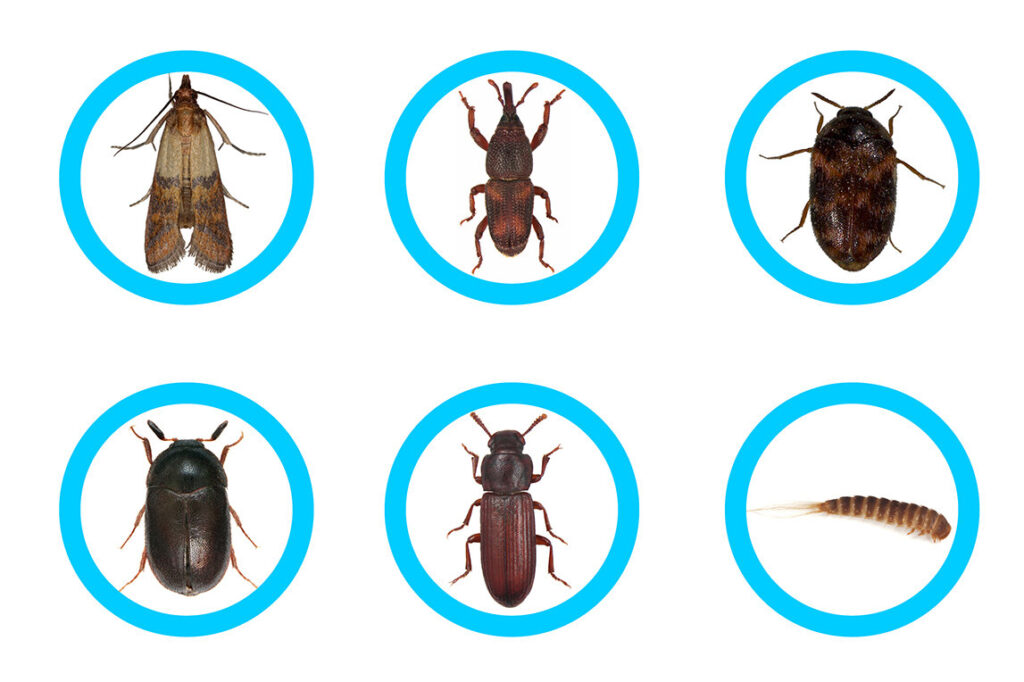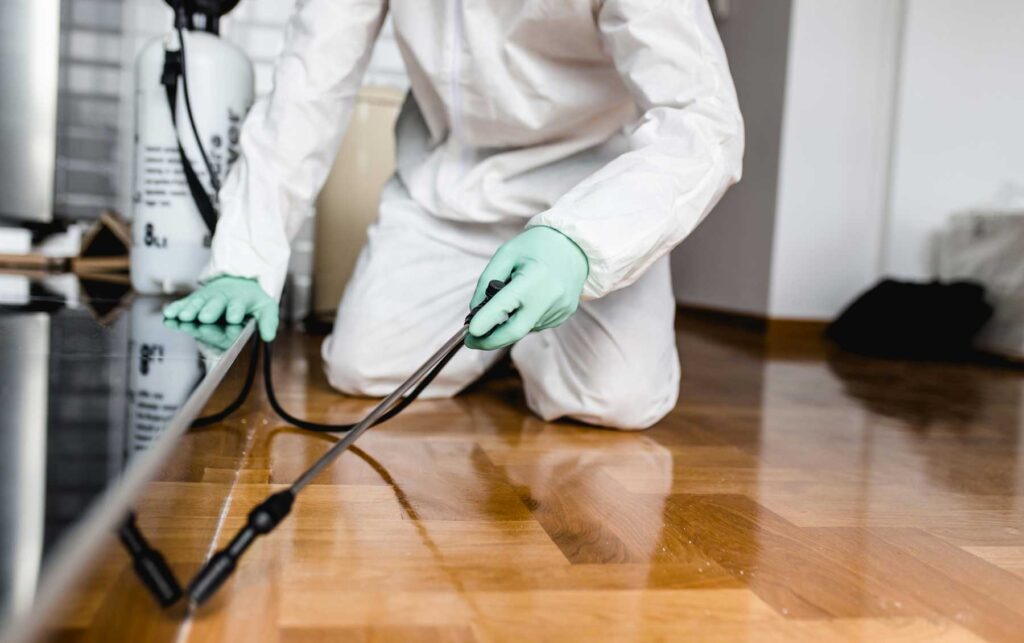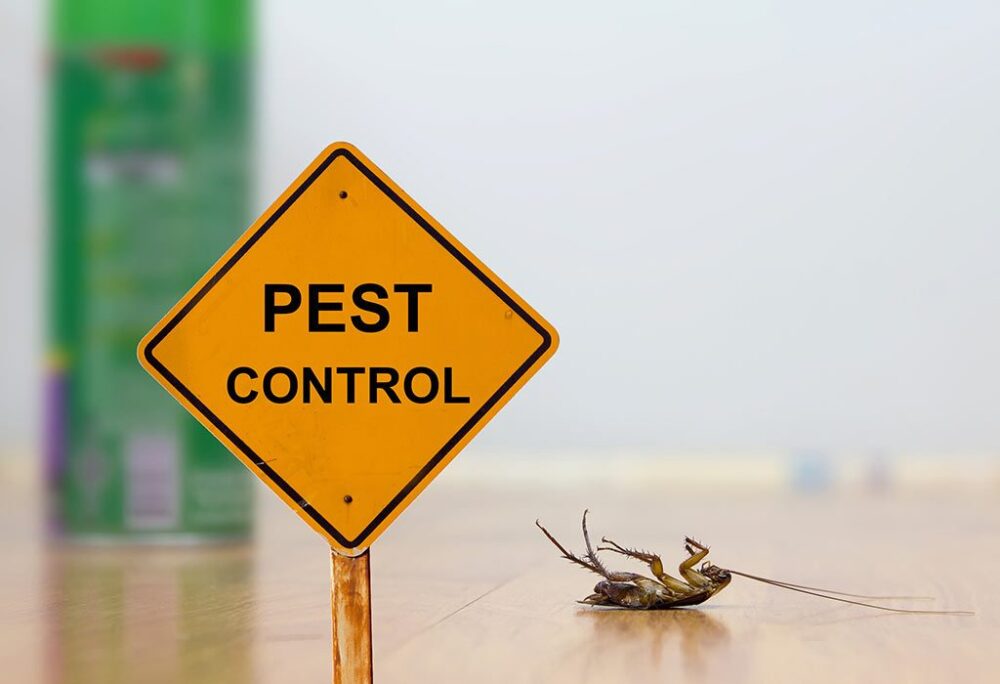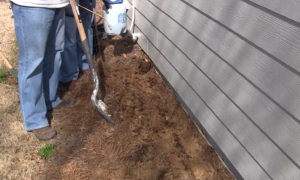Common household pests can be very problematic, as they can cause various health and structural issues. Cockroaches, ants, mice, and rats can spread diseases, damage wood and electrical wiring, contaminate food, and trigger allergies and asthma.
Fleas and bed bugs can cause itchy bites, and stinging insects like wasps can be dangerous if someone is allergic. These pests can also be challenging to control and eliminate once they have infested an area. Contact The Pest Group if pests infest your house.
Which are some of the most common household pests?

Source: freepik.com
Before you begin to understand how to, it will be essential for you to be aware of some common species of the latter. Such awareness can help you identify pests and take action accordingly. Below are some of the most common ones:
Cockroaches
Cockroaches are one of the most common household pests in almost any environment. They are attracted to warm, moist areas such as kitchens and bathrooms and can survive on various food sources. Cockroaches can also carry and spread diseases like salmonella and E. coli.
Ants
Ants are another common household bugs that can be found inside and outside the home. They are attracted to sugary or greasy food sources and can quickly infiltrate the home through small cracks and crevices. Ants can also cause damage to wood structures in the house and can be challenging to control.
Spiders
Spiders are not typically considered pests, but their presence in the home can be unsettling for many people. They are attracted to warm, dark areas and can often be found in basements, attics, and closets. Spiders can also cause allergic reactions in some individuals, and their venom can be harmful if they bite.
Bed Bugs
Bed bugs are most active at night and can be found in mattresses, box springs, and other areas where people sleep. Bed bugs can be challenging to control and often require professional extermination services.
Rats and Mice
Rats and mice are common household pests that can cause damage to property and spread diseases. They are attracted to food sources and can quickly infiltrate the home through small openings. Rats and mice can also gnaw electrical wiring, causing a fire hazard.
Termites
Termites are common household pests that can cause significant damage to the structural integrity of a home. They are attracted to wood and can quickly infest and eat away at the foundation of a house. These pests are particularly prevalent in warmer climates and near wooded areas.
Wasps
Wasps are commonly found in outdoor spaces but can also become a problem inside the home. They are attracted to sweet foods and can become aggressive if they feel threatened. Wasps can also sting repeatedly, and their venom can cause severe allergic reactions in some individuals.
Fleas
Fleas are small, wingless insects that feed on the blood of animals and humans. They are common household pests that can infest pets and spread to the entire household. Fleas can be difficult to control and often require professional extermination services.
How to effectively combat common household pests?

Source: pinterest.com
Combatting common household pests is something every homeowner will face at some point. Whether ants, spiders, cockroaches, or rodents, it is vital to take the necessary steps to get rid of these pests and keep them away.
Identify the pest
The first step to effectively combatting common household pests is to identify what type of pest you are dealing with. Different pests require different strategies for removal, so it is essential to know what kind of pest you are dealing with before you start any pest control.
Practice preventive measures
Once you have identified the pest, it is time to take preventive measures to ensure it does not return. Start by sealing cracks or crevices around windows, doors, and other entry points. Also, clean up any food or water sources that may attract pests.
Use chemical pest control
If the preventive measures do not work, it is time to break out the big guns. Chemical pest control is a great way to get rid of pests quickly and effectively. Depending on the type of pest, you may need to use baits, pesticides, or other chemical agents. Read the instructions carefully and wear protective gear when applying chemicals.
Utilize natural pest control
Several options are available if you prefer a more natural pest control approach. Traps like sticky or snap traps are a great way to catch and remove pests. Additionally, essential oils, diatomaceous earth, and other natural products can help repel or kill pests.
Hire a pest control professional
If the pests you are dealing with are particularly stubborn or hazardous, hiring a professional pest control company may be a good idea. Professionals have access to specialized equipment and techniques that can help get rid of pests quickly and effectively. These are just a few tips for combating common household pests. Remember, the best way to keep pests away is to be proactive. Keep your home clean, seal any potential entry points, and use chemical and natural pest control methods to get rid of and keep them away.
Is hiring a pest control service provider necessary for combating common household pests?

Source: freepik.com
Hiring a pest control service provider can be necessary for effectively combating common household pests, such as ants, cockroaches, and mice. These professionals have the knowledge, experience, and equipment to identify and eliminate infestations effectively.
One of the main benefits of hiring a pest control service provider is their ability to correctly identify the type and determine the most appropriate treatment method. Some pests may require a specific bait or pesticide, and a professional will know which products are most effective. They also have access to specialized equipment, such as thermal imaging cameras, that can be used to locate those and their nests.
Additionally, a professional pest control service provider will have the experience and knowledge to identify and treat potential entry points, such as cracks in foundations or gaps around windows and doors. They can also provide preventative measures to keep them from returning in the future, such as installing door sweeps or sealing entry points.



















